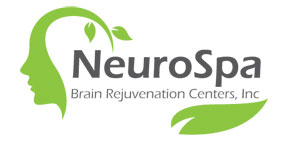
Doctors often treat depression with medication, but drugs aren’t effective for some people, or they may induce side effects that seem more harmful than they are helpful. As thousands continue to experience the pain and misery of depression, patients seek out and pursue new treatments every day. One of the leading treatments is transcranial magnetic stimulation or TMS. TMS offers a non-medication form of depression treatment that’s noninvasive, painless, and, for many people, effective. If you’re considering TMS therapy vs. antidepressants and which is best for you, look over the following pros, cons, and effects of both to help you decide.
The Pros of Medication
If your doctor or psychiatrist recommends medication to help you control your depression, here’s why: like most medicines, antidepressants work to help your body and your brain cure themselves. Antidepressants work to activate and balance neurotransmitters in your brain. Neurotransmitters are chemicals emitted by your nerve fibers and sent over the synapses between nerves to have the body perform certain actions. Think of neurotransmitters as transmitted messages sent from one “office” to another to get specific jobs done. Some well-known neurotransmitters include dopamine, glutamate, serotonin, and norepinephrine.
So neurotransmitters are messages, but sometimes the messages get muddled or aren’t sent at all. In cases like these, the brain has difficulty balancing all the necessary chemicals, leading to inexplicable feelings of sadness and worthlessness, an inability to concentrate, loss of or excessive appetite, insomnia, and other symptoms. Most antidepressants work to activate serotonin in the brain, which is the neurotransmitter that keeps us feeling happy, at ease, and on an even keel. Well-known antidepressants include:
- Sertraline (brand name Zoloft)
- Fluoxetine (brand name Prozac and Sarafem)
- Citalopram (brand name Celexa)
- Escitalopram (brand name Lexapro)
And there are many others. Medication can and has enabled many patients to feel better in a matter of weeks.
The Cons of Medication
Unfortunately, sometimes medication isn’t the best choice for a patient. Often, it takes several tries and a prolonged period for a patient and doctor to find the right drug to use and the proper amount to take. As mentioned, it may take a few weeks, or even longer, for some patients to feel the drug’s beneficial effects. Working together, a patient and doctor can eventually find the proper prescription, but it can take a great deal of time. Patients also need to stick to a regimen and not stop taking the medication; otherwise, it will throw off their schedule. This can be difficult because, at times, the medication comes with unpleasant side effects, such as sleepiness or insomnia, nausea, dry mouth, weight gain, diminished libido, headaches, nervousness, and others. The cure, as the saying goes, is considered worse than the disease by some depression sufferers.
The Pros of TMS
A doctor, psychiatrist, neurologist, or other health-care provider may suggest transcranial magnetic stimulation (TMS) to treat depression, especially if the medication doesn’t seem to work. What is TMS? TMS uses magnetic pulses to induce the mood centers of the brain to switch up, so to speak, their signals by changing neuronal activity. Simplified, they send signals to the affected parts of the brain to look alive and get to work. TMS can work to help those suffering from depression, obsessive-compulsive disorders, anxiety issues, and the like.
Transcranial magnetic stimulation may sound ominous, but it’s a noninvasive, low-impact, outpatient procedure that doesn’t require anesthesia and uses magnets rather than electricity to put neurotransmitters back to work. No zaps or shocks here! TMS has been studied and tested extensively, proven to work for many patients, and is FDA-approved. Statistically speaking, TMS is a safe and effective form of therapy and treatment overall for patients who have tried at least two separate medications without feeling better.
The Cons of TMS
Naturally, not every treatment is perfect, though it is closer than most in terms of results and side effects. Side effects, if and when they occur, are much milder than those induced by medication. Some patients have reported reactions and side effects such as facial spasms, slight dizziness, scalp itchiness and discomfort, tingling sensations, and even headaches. However, they rarely persist or recur when these do occur and usually disperse after the treatment session. However, as with medication, the patient can mention the side effects and talk with their doctor about adjusting the length, time, and intensity of the sessions. It can take time to find the sweet spot, so to speak.
Also, time is often an issue for many. Scheduling might be considered a drawback in some people’s approximation since treatment sessions may need to happen daily over the course of several weeks (though most sessions are short and no more than 10 to 20 minutes to half an hour in length). Each individual’s experience and schedule may be different, however. Regardless, treatments are usually swift, pleasant, and painless.
What’s Right for You?
We’ve discussed TMS therapy vs. Antidepressants and asked the question, which is best for you? So what comes next? Everyone is different, of course, and one treatment may (or may not) work as well for one person as it does for another. It all comes down to what you and your doctor, psychiatrist, or neurologist decide is the best treatment for your particular depression or other disorder. More than likely, they’ll suggest a course of medication first, which may take time to get right. However, if your doctor or neurologist suggests TMS therapy for depression, you can enter into it with a better idea of what will take place at your treatments, potential side effects, and what is going on up there when they apply the device or set you up in the required headgear.
All that said, if your health-care provider hasn’t mentioned it, it’s worth bringing up the possibility of transcranial magnetic stimulation at your next appointment or session as an alternate or accompanying treatment. It’s the spirit of collaboration and teamwork between you and your doctor that’s the surest road back to good physical and mental health!

